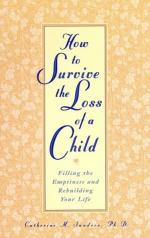|
This section contains 8,680 words (approx. 29 pages at 300 words per page) |

|
SOURCE: "1000 Words: Fiction Against Death," in The Georgia Review, Vol. XXXVI, No. 4, Winter, 1982, pp. 811-30.
In the following essay, Faris investigates the modern use of narration as the postponement of death—culled from the tradition of The Thousand and One Nights—in the work of such writers as Marcel Proust, Jorge Luis Borges, John Barth, Vladimir Nabokov, and others.
When Scheherazade staves off her death for 1001 nights by telling a continuously enthralling chain of stories to her captor, the king, she dramatizes an intriguing aspect of all literary discourse: its capacity to simulate the postponement of human death through the prolongation of fictional life. For narrators and readers alike, the end of a text represents a small death of sorts; its postponement, continued life.1 Scheherazade's story has endured and continues to fascinate modern writers and theorists because it pictures the basic human desire to live on and on...
|
This section contains 8,680 words (approx. 29 pages at 300 words per page) |

|


